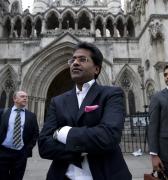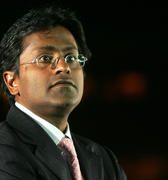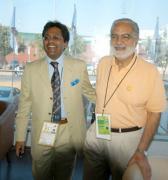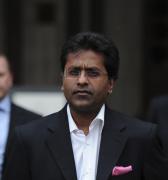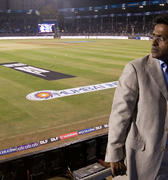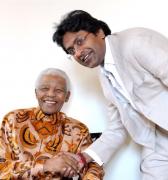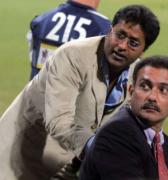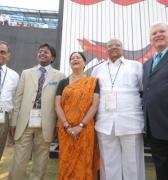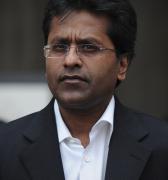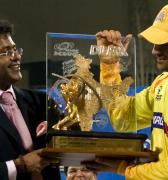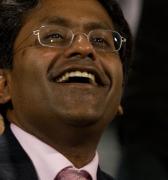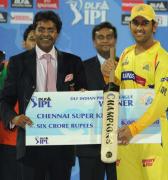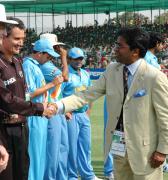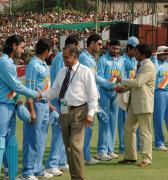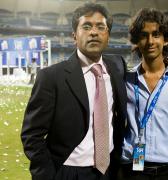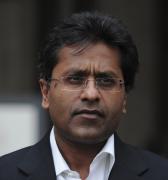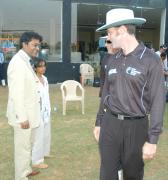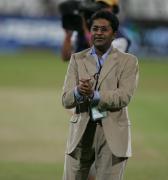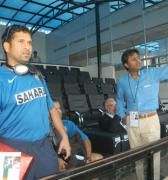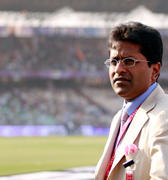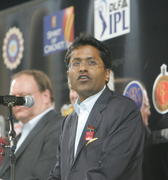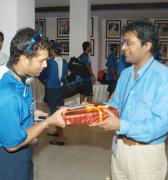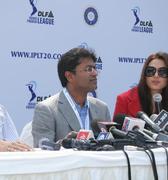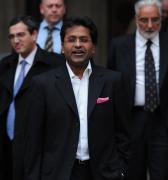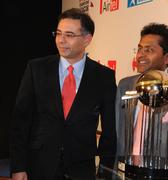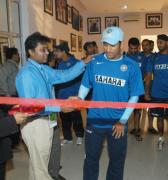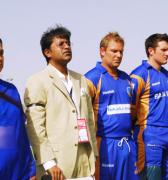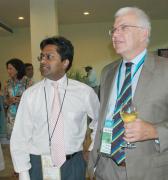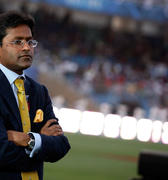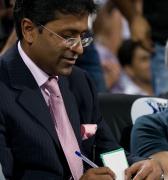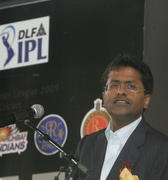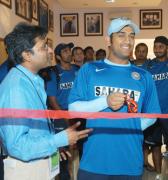The BCCI’s termination of the Kochi Tusker’s IPL franchise for non-payment of a bank guarantee, is a financial mess I predicted over a year ago and one I was prevented from trying to avoid during my time as IPL Commissioner.
The news, which came out of the BCCI AGM in Mumbai, is another example of how the vendetta against me is being laid bare. At this juncture, it’s important to note that my comments within this blog are not hindsight opportunism, but a presentation of facts I have previously declared over the last 18 months in replies to Show Cause notices and via an open letter - all of which have long been in the public domain. [To read the full transcript of my comments which have been in the public domain since May, 2010, click here] The expansion auction in March, 2010, in which the Kochi franchise was awarded, was undermined by the BCCI’s insistence that bidding conditions I had put in place - and that had been personally cleared by the then President, Shashank Manohar - were too onerous.
The stark reality is that had they remained in place, this apparent breach by Kochi could have been avoided and the IPL and the BCCI would have been protected against any potential for financial loss. In the build up to the auction which awarded the Kochi franchise, I proposed a financial condition that would filter out all but the most serious and robust of bidders. This condition stipulated that bidders should have a capitalisation of no less then US $1 billion and was created to ensure they had the ability to support an IPL franchise.
A commissioned report compiled by Ambit and KPMG confirmed that 73 Indian companies had a net worth above US $1 billion and 156 had market capitalisation above that figure, so we knew there was a significant market at this level. Furthermore, with the reserve price for a franchise set at US $225 million, the net worth of a successful bidder would be at least four times the reserve price of a new IPL team; a further safeguard against a consortium investing beyond their means.
Its also interesting to note that part of the BCCI requirement was to generate interest from bidders for whom an IPL franchise was neither its sole, or its main business. Capitalisation of at least four times the reserve price, would ensure that bidders would clearly have other, significant interests and would also help to ensure their ability to meet annual payments over the required ten-year franchise period. In summary then, the BCCI wanted involvement from those who already had credibility, not those for whom the IPL would provide it.
But for some reason, the BCCI had a late change of heart and, after approving the initial conditions, they effectively brought more bidders into the mix by requesting that I lower the capitalisation requirement. I was concerned this would enable less stable bidders to participate. I was overruled.
After the award of the franchises to Kochi and Pune, the issue was compounded by my unease with the make up of the consortium which successfully bid for Kochi. Within the shareholding, there were members who were not bearing any of the risk and simply enjoying the potential benefits. This, of course meant others were subjected to a greater proportion of responsibility and I believed such an arrangement could result in potential default at some point - and problems for the IPL.
Many of you will recall that this was the reason for my now infamous ‘Tweet’ which confirmed the names of all shareholders because I felt the identity of the ‘preferred shareholders’ lacked transparency. Among the names revealed was the then Minister of State for Foreign Affairs, Shashi Tharoor. The revelation prompted his resignation which was indeed unfortunate. But disclosure and transparency were of the utmost importance to me in ensuring the ongoing integrity of the IPL and consequently, the BCCI. My decision to ‘tweet’ was merely part of my ongoing determination to safeguard the IPL as a credible brand.
Now, 18 months later, the BCCI has terminated the Kochi contract on the basis of an unpaid bank guarantee which, according to new President, N. Srinivasan, “....is not capable of being remedied." As a consequence, the BCCI now stands to lose more than US $300 million by virtue of reduced commercial revenue because Kochi's suspension means fewer teams and therefore games - not to mention a loss of credibility for the IPL itself. It will be interesting to see who takes responsibility for an outcome I predicted even before the contract was signed. It is a situation that could have been avoided but what it shows is that the unsubstantiated accusations made against me suggesting I imposed ‘onerous’ conditions purely to try and manipulate the bidding process towards my preferred bidders has been shot to pieces.
The facts presented here are a replication of information that has been in the public domain for 18 months. My response to a BCCI Show Cause notice on 15th May, 2010 can be viewed by clicking here.


















